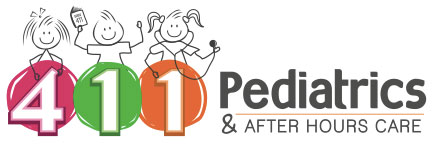Colic
All babies cry. It’s the only way they have to communicate. Babbling is a few months away, and full sentences are at least two years away! But, some babies cry more than others. And when they do, the “C” word comes up in conversation.
The “C’ word is colic. Parents whisper it under their breath, hoping they don’t inflict this malady on their baby. But what is colic, anyway? Colic follows the Rule of Three’s. It is crying that goes on for three hours a day (right around dinner time), starts up at three weeks of age, and lasts until three months of age. And, it’s pretty miserable for the baby and his entire family.
No one really knows what causes colic. Some experts think it’s due to intestinal or neurologic immaturity. Because we don’t know what causes colic, we also don’t know how to treat it.
Here are some things to try: Some colicky babies are soothed by gentle, repetitive motion. Take your baby for a nightly stroller ride or car ride around the neighborhood during her witching hours. You can give gas drops, gripe water, or homeopathic remedies, but they provide little or no relief. The only medication with proven scientific results is a probiotic called lactobacillus reuteri. Feel free to try it.
The most effective treatment for colic is time. Even if you do nothing, your baby will outgrow colic after he is three months old.
Your job is to cope. Recruit family or friends who have offered to help. Have them come over around dinner time. You leave the house and get some fresh air (and silence!) If that isn’t an option and you feel you are losing your patience, put your crying baby safely in his crib and walk into another room. Colicky babies have a higher risk of being physically abused by a parent who is at the end of her rope. Do your baby a favor and take a moment for yourself.
Now, before you go buy noise-canceling headphones to survive the next two months, make sure you have the right diagnosis. Babies who cry all the time (not just three discrete hours a day), or cry and arch after feedings may have a medically treatable diagnosis like heartburn (gastroesophageal reflux disease or GERD) or a milk protein allergy. Check in with us if you have concerns!


